Publicado el
Actualizado por última vez en
Since 2014, the Collaboration on International ICT Policy for East and Southern Africa (CIPESA), a Ugandan-based think tank, has being convening the Forum on Internet Freedom in Africa (FIFAfrica) in collaboration with other partners. This year, in collaboration with the Media Foundation for West Africa (MWFA), participants from different parts of the continent and beyond were brought together in Accra, Ghana.
From the beautiful shores of the Atlantic Ocean at La Palm Royal beach hotel, the two-day forum was conducted after several pre-event workshops and meetings. The event convened nearly 300 participants from over 45 different countries.
CIPESA in collaboration with Small Media held the UPRoar training which converged participants from Ethiopia, Gambia, Ghana, Kenya, Malawi, Namibia, Nigeria, Senegal, Tanzania, Uganda and Zimbabwe to deliberate on the United Nations Universal Periodic Review (UPR) mechanism as a means to foster freedom of expression, particularly online. During this training participants had the opportunity to understand how, through recommendations to the UN on human rights, the UPR process could complement advocacy and implementation of digital rights in Africa. In their various capacities, participants explored opportunities for complementary advocacy efforts and stakeholder engagement to hold governments accountable for their human rights records, both online and offline.
From a gender perspective, the UPR mechanism has provided a platform for advancement of inclusivity, empowerment and equality for women. For example, in the last three cycles, a total of 3,078 recommendations out of 3,540 recommendations were made to the African states regarding women’s rights and these were then addressed or supported by the African states. However, only a few of the 3,540 recommendations touched on women’s rights online. As a powerful mechanism that is helping to put forward human rights concerns and foster accountability, it is imperative that women’s rights activists and practitioners utilise the UPR to advocate and call for policies and legislation for a safer internet space for women.
Continue reading at GenderIT.org.


